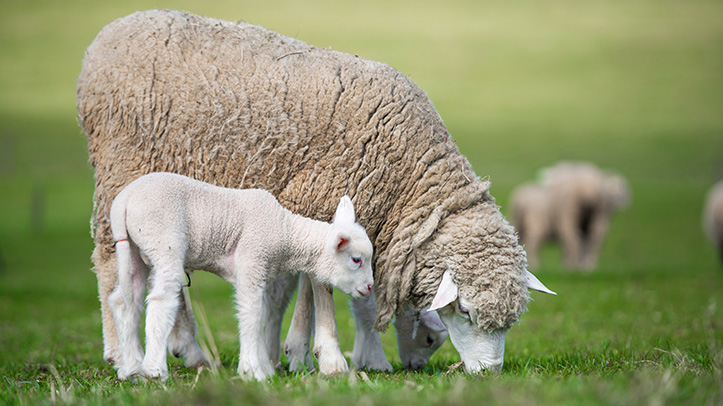Data on worm egg counts in lambs from the last five years has revealed yearly changes in the risk period and serves as a warning to all farmers to take regular faecal egg count tests to help prevent unnecessary losses.
Results from the 25 monitoring farms in the Zoetis Parasite Watch Scheme found last year (2023), peak faecal worm egg counts (FWEC) occurred between June and October, with the highest average count in September of almost 600 eggs per gram (epg).
The suggested threshold for considering treatment is 250 epg. This is compared to 2019, when the risk period started in early March and ran through until the autumn, with moderate levels throughout the season.
Now in its ninth year, the data from Parasite Watch shows that no two years are the same. This means farmers should monitor their lambs for gastrointestinal parasites throughout the grazing season, to ensure they are being treated only when needed.
Zoetis vet Patricia van Veen said, “The Zoetis Parasite Watch data is based on actual FWEC in lambs on 25 farms throughout the UK, updated most weeks throughout the grazing season and can be used to help assess the risk of disease and production losses associated with high worm burdens. The only way farmers can truly understand what is happening in their flock and time treatments appropriately is to regularly monitor faecal egg counts, lamb growth rates, and body condition.”
Data is also available for Nematodirus, a gastrointestinal parasite disease that often occurs before eggs appear in the faeces. Parasite Watch data for Nematodirus from the previous year alongside the SCOPS Nematodirus Forecast data can be used to highlight the real-time risk, enabling targeted treatment.
Devon sheep farmer Peter Baber has been monitoring faecal worm egg counts in his flock for over 30 years and breeding worm-resistant sheep in his flock of 900 ewes, which consist of Exlana, Suffolks, SufTex, and Texels. He said it’s difficult to predict when worms will pose an issue.
“You have to monitor worms to be able to manage them responsibly. That means keeping an eye on stock condition and performance as well as regularly taking faecal egg counts,” Mr Baber said.
“Once we have made our breeding selection, there are very few situations when we need to drench everything in the flock. Most times, we can selectively treat groups of animals depending on the severity of the infection.
“Monitoring is vital. It just makes no sense to drench any sheep without checking to see if they really need it; and then check again after drenching, to see if the drench actually worked. We’ve got the technology; it is really simple to do and it is so important that it is used.”
Farmers, SQPs and vets can use Parasite Watch for free and sign up to receive alerts at www.parasitewatch.co.uk.


